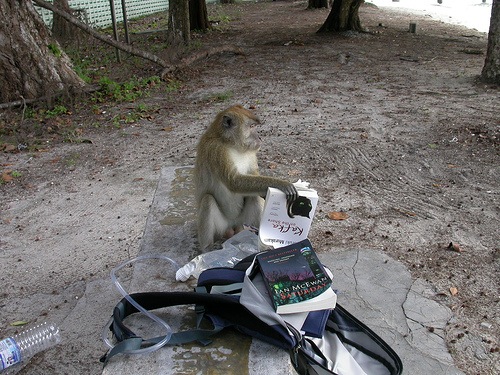An impromptu conversation happened last night over on Twitter. The topic began as a discussion over a hypothetical show (video, podcast, whatever) that would reflect the community and not just have the same people. The conversation began because of a discussion over perceived sexism in the social media community where men could do anything, but women could only be “consumed” (hey, it’s a legitimate use and context for the word!) if they were “sexy”.
To pop this proverbial bubble, the idea was presented that a community-driven show should be created where “panel members” would include an equal cross-section of the community, regardless of sex or race.At one point, a panel was suggested that I noted were all “talkers” and not “doers”.
Naturally, some took offense to this characterization, but my question is why? There is an equal need for both and is non-hierachal. In fact, it may be too simplistic of a thought considering the diversity that exists across sectors, bloggers and industries.
I think it’s important to establish a premise for talkers and doers. What are they, why do they exist and what do they contribute to the ecosystem?
Talkers
Talkers are visionaries, by and large. Not always. Sometimes they are just pundits. They are the idea people, often challenging the status quo and causing people to think based on data, research and innovative thinking. They share their ideas readily and often bring a different level of communication to the fray.
Talkers are often CEOs, PR, Marketing, or members of management teams and they frequent the conference speaking circuit.
Doers
Doers are often mistaken for developers. Though developers generally fall into the category of “doer”, the definition is far wider than just physical “doers”. Doers are usually the ones that have ideas and instead of talking about them, they gather the resources (financial and human) and set about putting plans into actions.
Entrepreneurs are often doers. They are the ones with the ideas that have the guts or experience to run with them. Though they may sometimes be talkers too (small business CEOs for instance), their bread and butter is in the action. Smart doers listen to talkers ideas and filter them for actionable items that make sense for the ecosystem.
These are my definitions. They may be simplistic, but I think they provide a great framework for this conversation.
I think there is a symbiotic relationship between doers and talkers. One cannot exist without the other and gets its lifeblood from the other.
For instance, Jeremiah Owyang of Forrester is largely a talker. Though he comes from Hitachi where he was largely a doer, by his own admission he’s more of a talker now.
I think there’s a negative connotation to talkers. That they are just windbags excelling in the art of punditry. But talkers bring ideas to the table that often shape the course of what is going on in the ecosystem. Talkers need doers who will take their ideas and run with them.
Doers, of whom I would classify Dave Troy of Twittervision have ideas but instead chooses to innovate on ideas and create new things. In this case, David (whom in disclosure, I realized a few weeks ago I interviewed with back in the 2002-2003 timeframe when he was the CEO of Toad) has taken ideas surrounding Twitter and made a visualization for them. He also recognized that there was a need for something like SocialDevCamp East and created it (with help).
Others like Jason Calacanis straddle the line between talkers and doers by challenging the status quo of spammy search engines and proposing a concept of human-powered search and running with it. People who can straddle the gap, place themselves in the most valuable position of seeing the cloud, recognizing it’s potential and doing something about it (pardon the reference).

